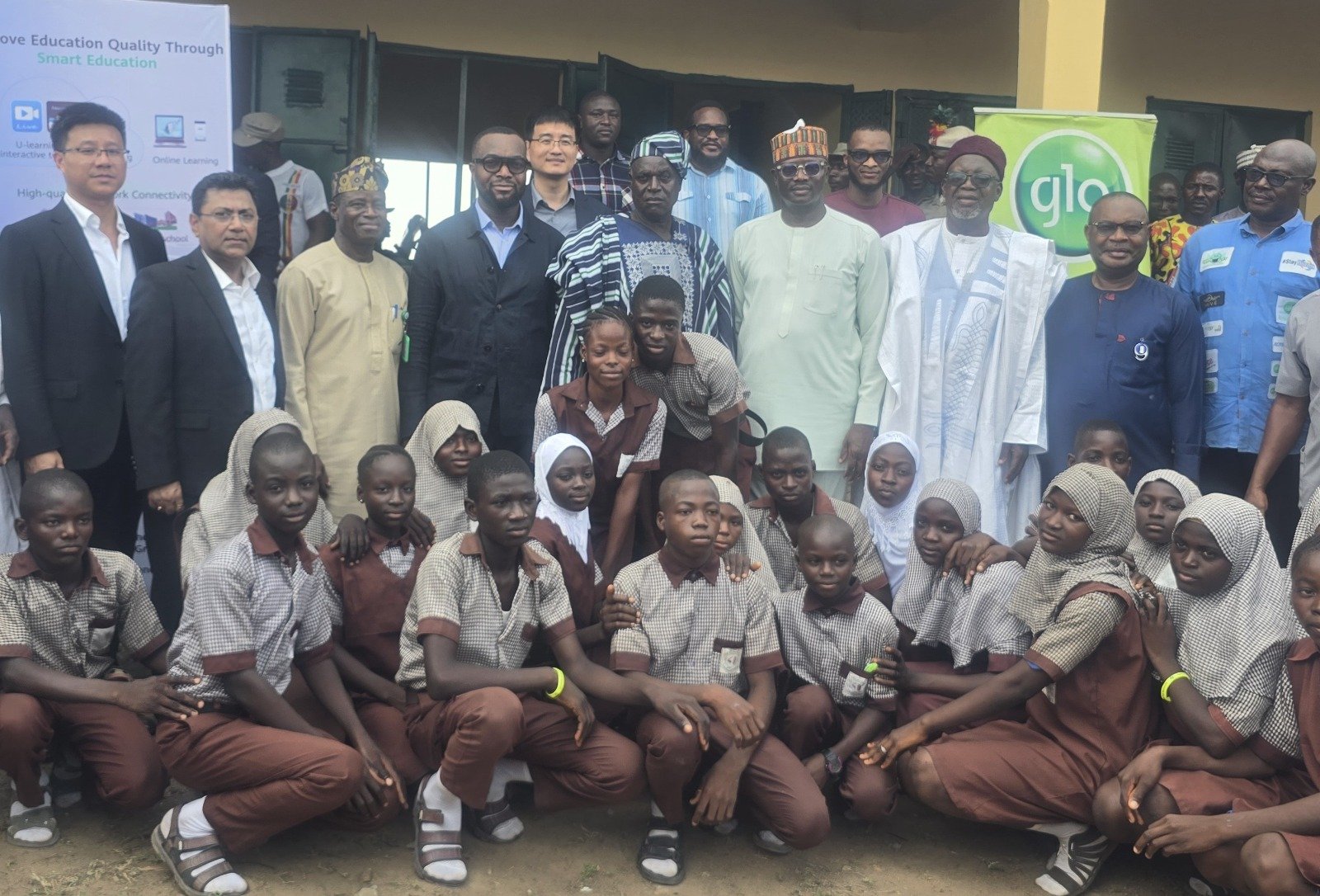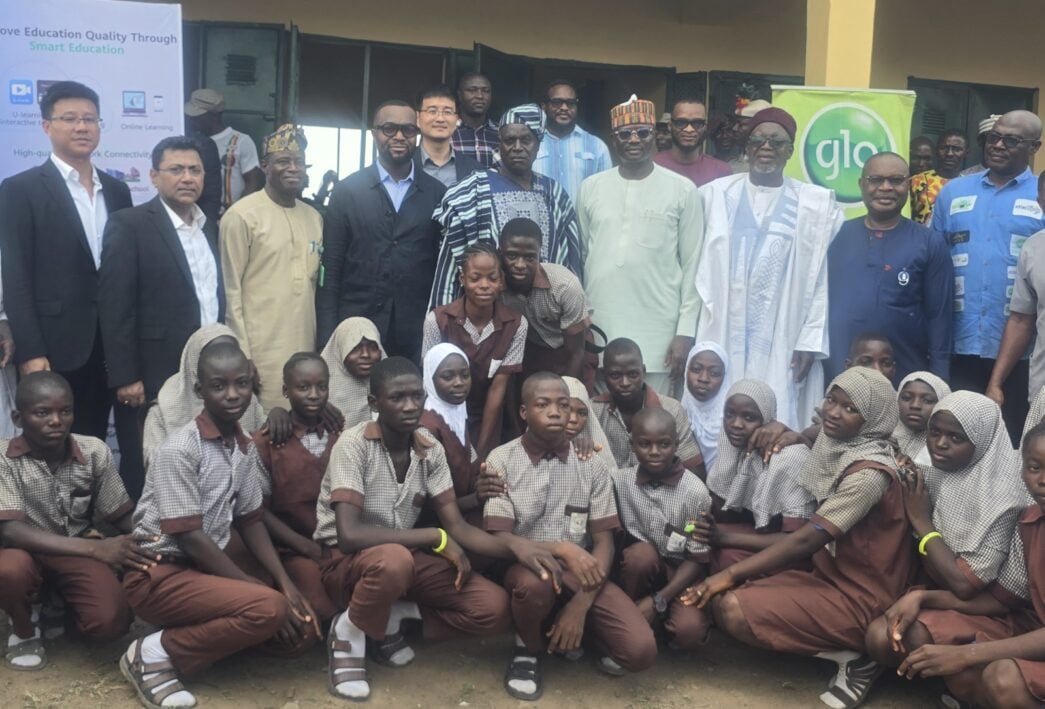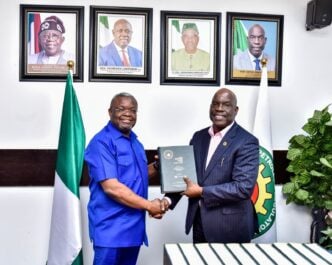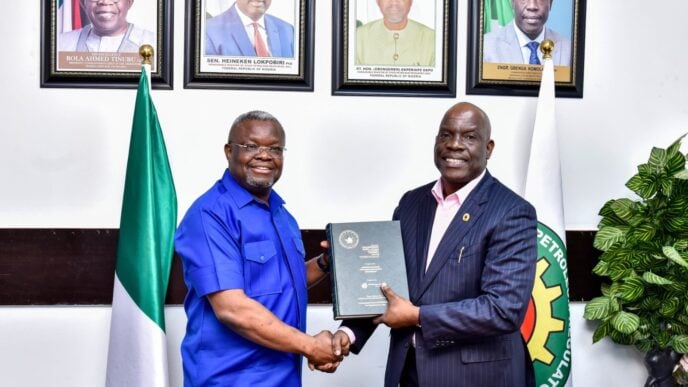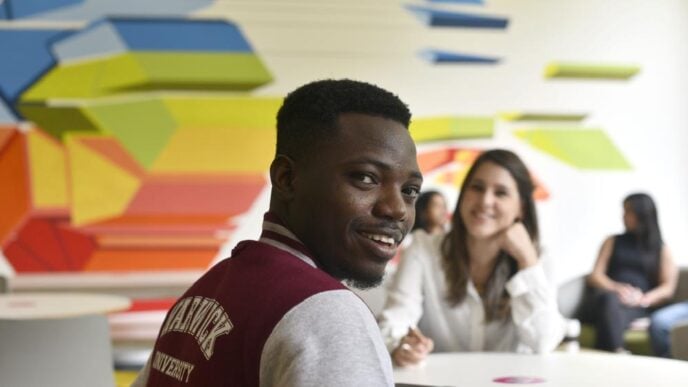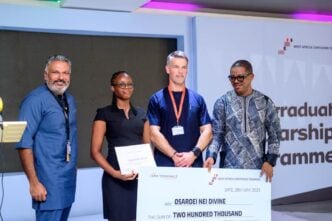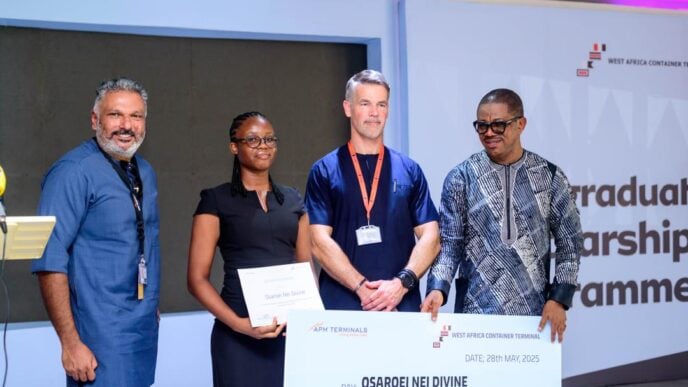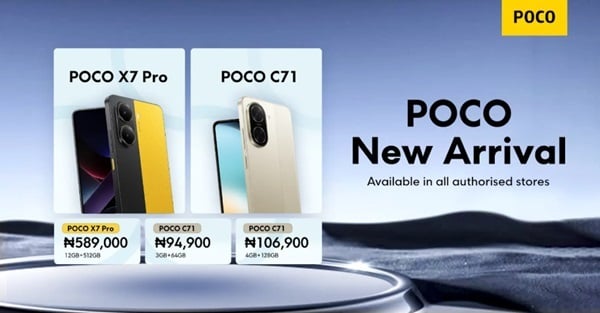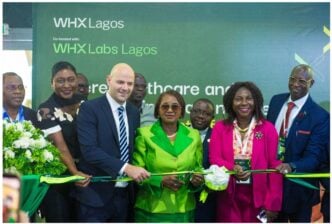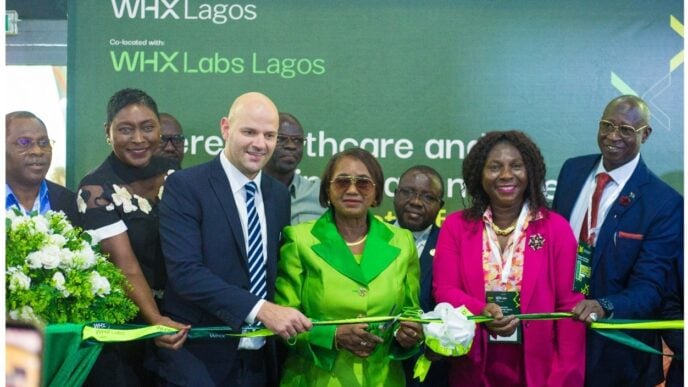Pix 1: L-R: Managing Director, Huawei Nigerian Enterprises, Mr Terrens Wu; Globacom’s Group Chief Technical Director, Mr. Sanjib Roy; Permanent Secretary, Federal ministry of Communications, Innovation and Digital Economy, Mr. Adeladan Rafiu Olarinre; Minister of Communications, Innovation and Digital Economy, Dr. Bosun Tijani; leader of Isuanin Kura community, Chief Abubakar Bamaiyi; Globacom’s Head of Division, North West, Mr. Kazeem Kaka, and other guests and students at the commissioning of “Digital Village” pilot project in Isuanin Kura in Ibwa 2, Gwagwalada, Abuja, on Wednesday.
The plan by the Federal Government to provide digital access to 7,000 remote communities across the country got off on Wednesday with the commissioning of the pilot project in Isuanin Kura in Ibwa 2, Gwagwalada, on the outskirts of the Federal Capital Territory, Abuja.
Championed by the Federal Ministry of Communications, Innovation and Digital Economy in partnership with Globacom and Huawei Technologies, the project will deliver voice and data services, free public wi-fi access, digital healthcare and remote learning capabilities to the over 12,000 residents of the community.
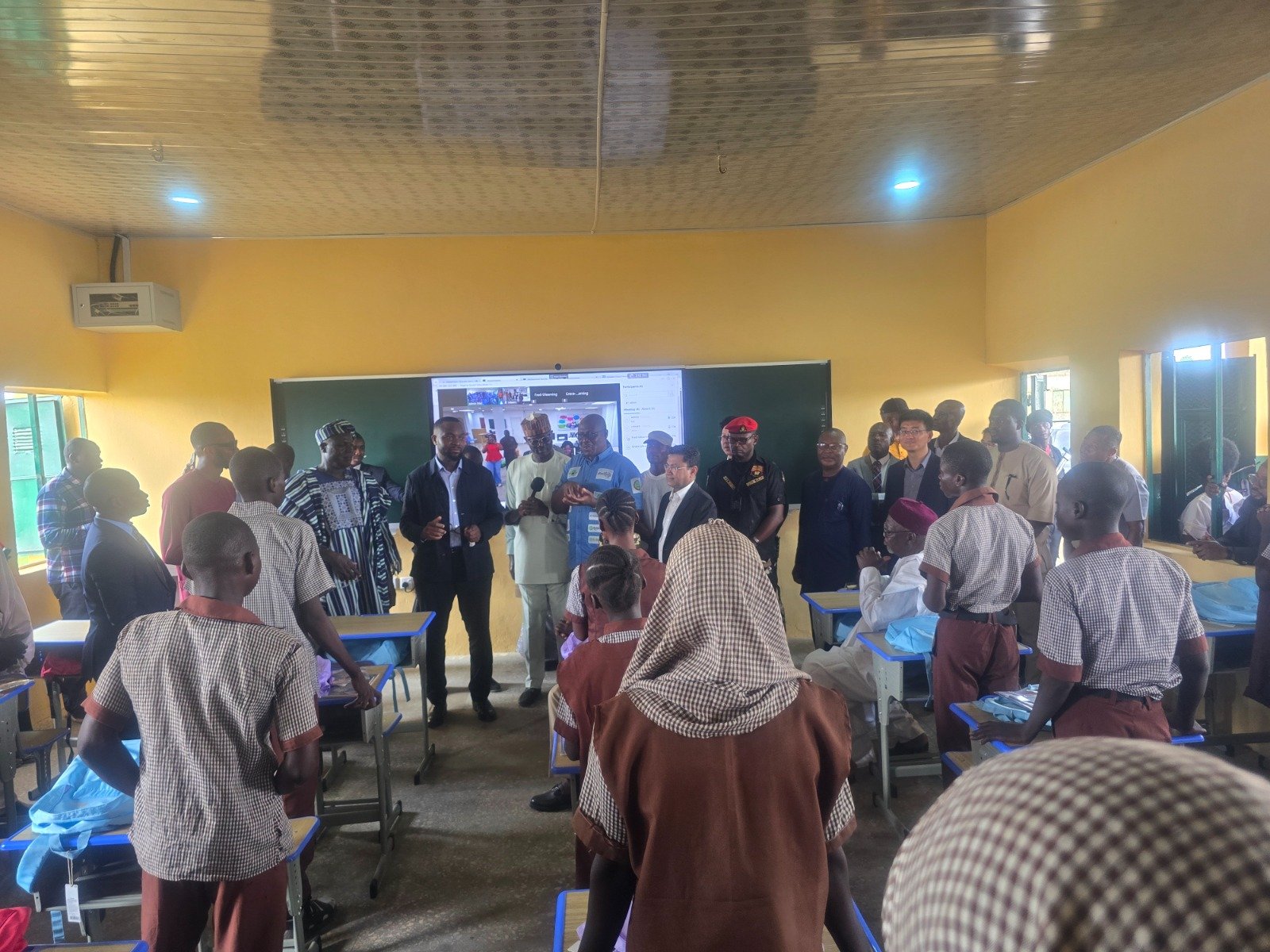
Dr. Bosun Tijani, Minister of Communications, Innovation and Digital Economy, commended Globacom and Huawei for supporting President Bola Tinubu’s commitment to addressing the connectivity crisis affecting more than 20 million Nigerians who currently lack basic telecommunication access.
“If you bring out your phone in many communities, there is no network at all. This is costing the country significantly because people cannot access financial services, medical care, or education”, the minister noted, adding that this also poses governance challenges as disconnected areas are difficult to administer.
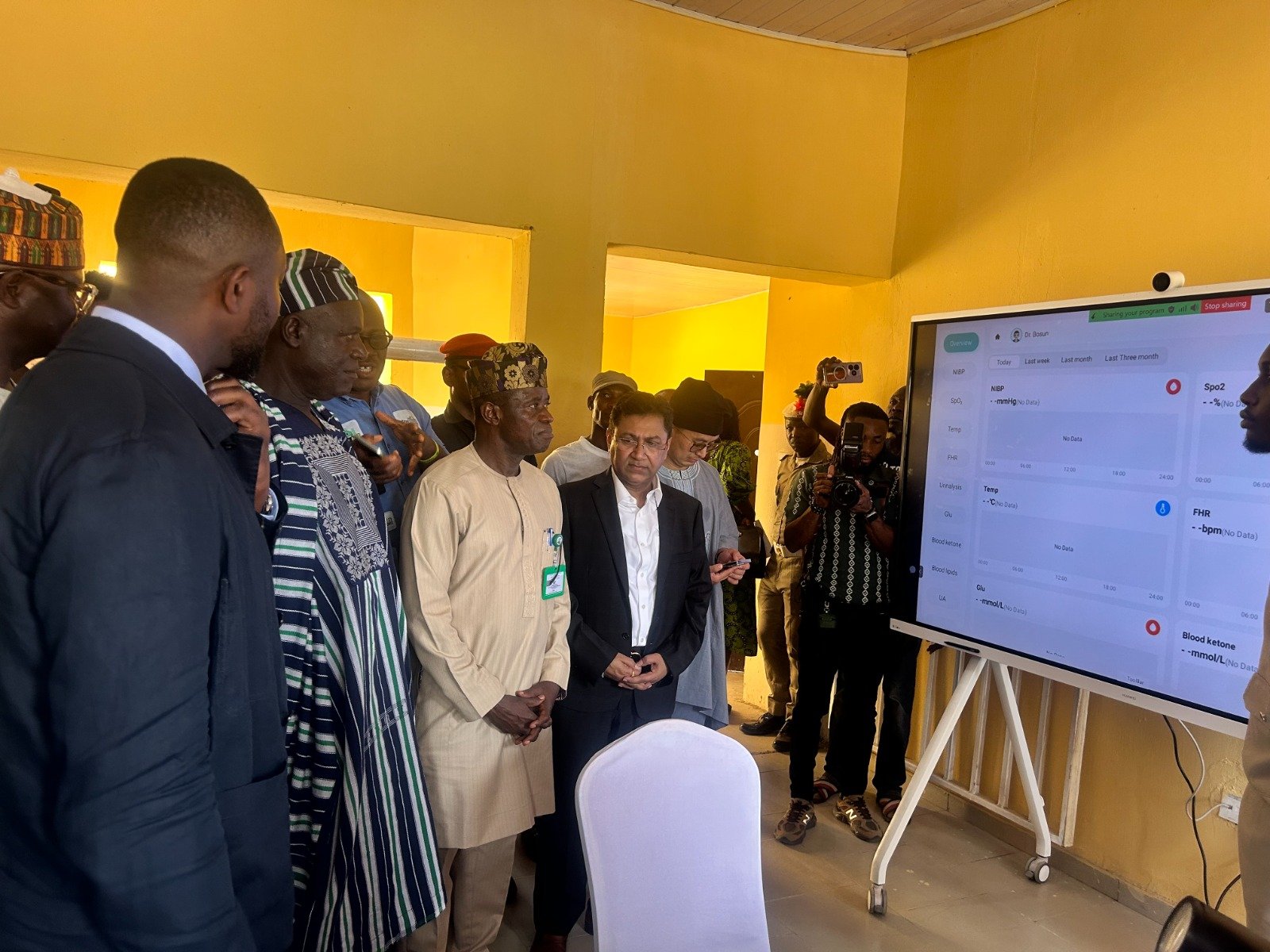
“Where you live should not determine your access to opportunity. We are using innovation to ensure every Nigerian, regardless of location, can thrive in the digital age”, Dr Tijani stated.
Globacom’s Group Chief Technical Director, Mr. Sanjib Roy, who spoke on the project said the company worked with the Ministry and Huawei to bring up the site by providing the Microwave backhaul link and access to Globacom’s full core network resources and also manage the operation of the site to ensure uninterrupted voice and data services for the community.
“The Smart Education facility allows for young students within the community to receive education remotely, with the teachers being in Abuja or any other part of the world, while Healthcare delivery has been revolutionised through connected medical equipment that enables remote consultations between patients in Ibwa and doctors and specialists in urban-locations”, Mr Roy explained. The site and all the equipment are powered by solar thereby ensuring clean environment and uninterrupted power supply.
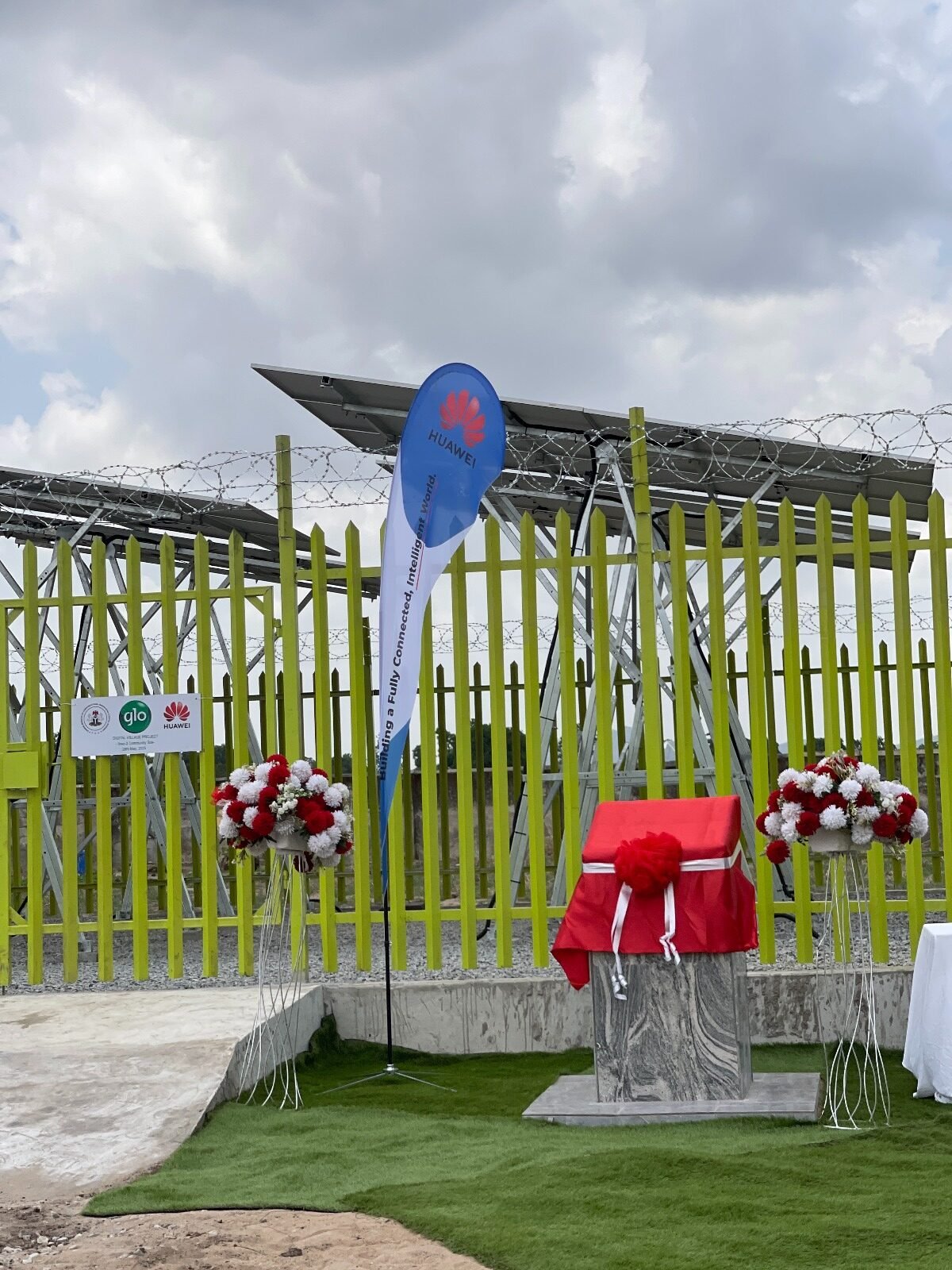
During the inauguration, the system’s effectiveness was demonstrated with the leader of Isuanin Kura, Ibwa 2 Community, Chief Abubakar Bamaiyi, having a live consultation with a medical doctor in Abuja, while the Minister and other guests watched as the students in the local school were being taught via online video by a teacher in Lagos, using equipment provided by Huawei Technologies.
Mr Kazeem Kaka, Globacom’s Head of Division, North West, who also spoke at event, said, “For Globacom, this is a continuation of our long-standing mission to democratize access to communication. Since 2003, we have remained at the forefront of efforts to lower the barriers to connectivity—making telephony, internet, and data services more accessible and affordable for all Nigerians. Today’s launch reinforces that commitment. We are particularly excited about the impact this initiative will have on education, healthcare, and economic empowerment of Isuanin Kura, Ibwa, people”.
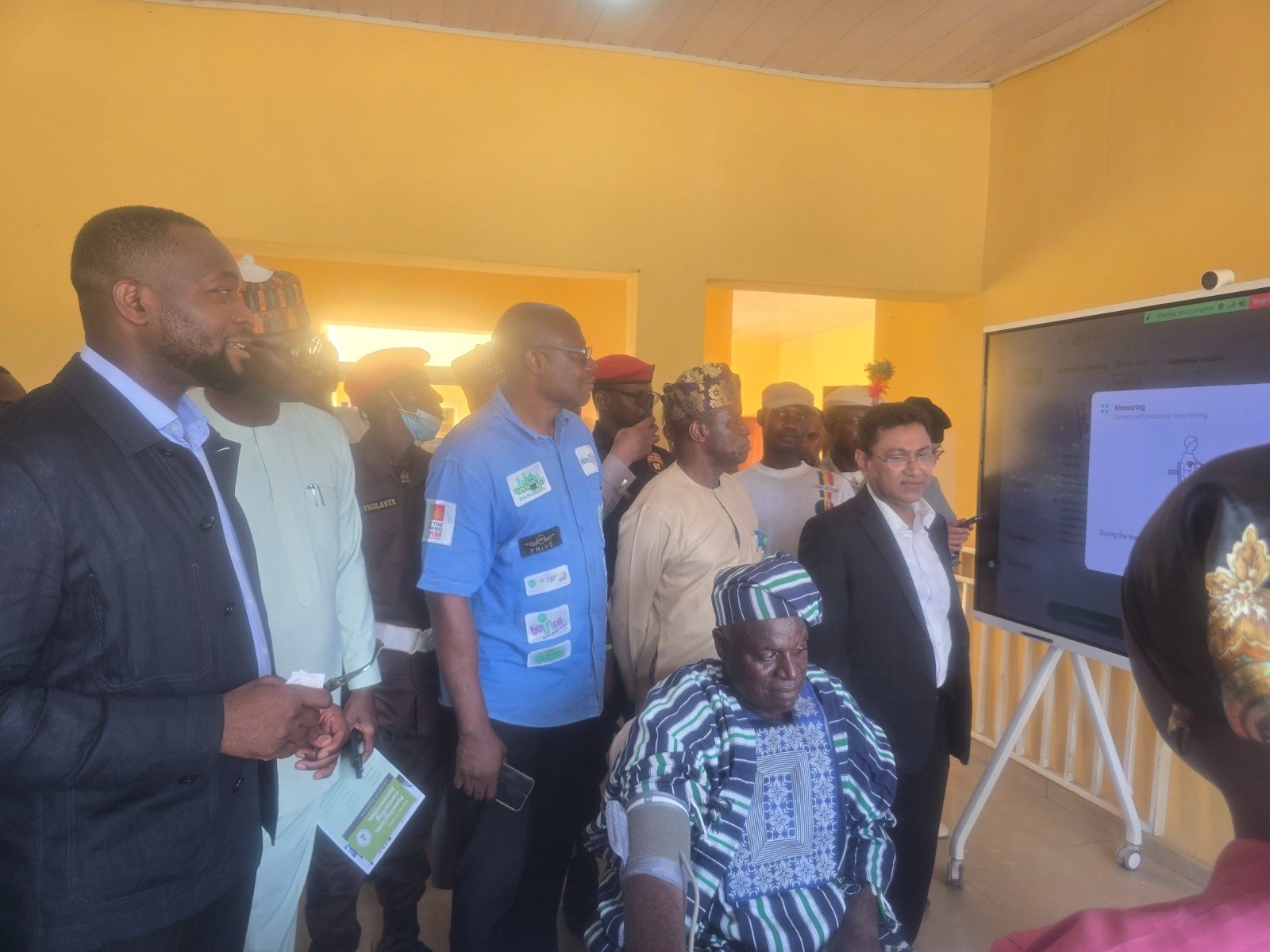
In his remarks, Mr Terrens Wu, Managing Director, Huawei Nigerian Enterprises, said his company was proud to be part of the initiative to provide connectivity, and promote learning and healthcare in rural communities through digital technology. His company later gave out 120 affordable smartphones to the community to help them have access to telephony.
